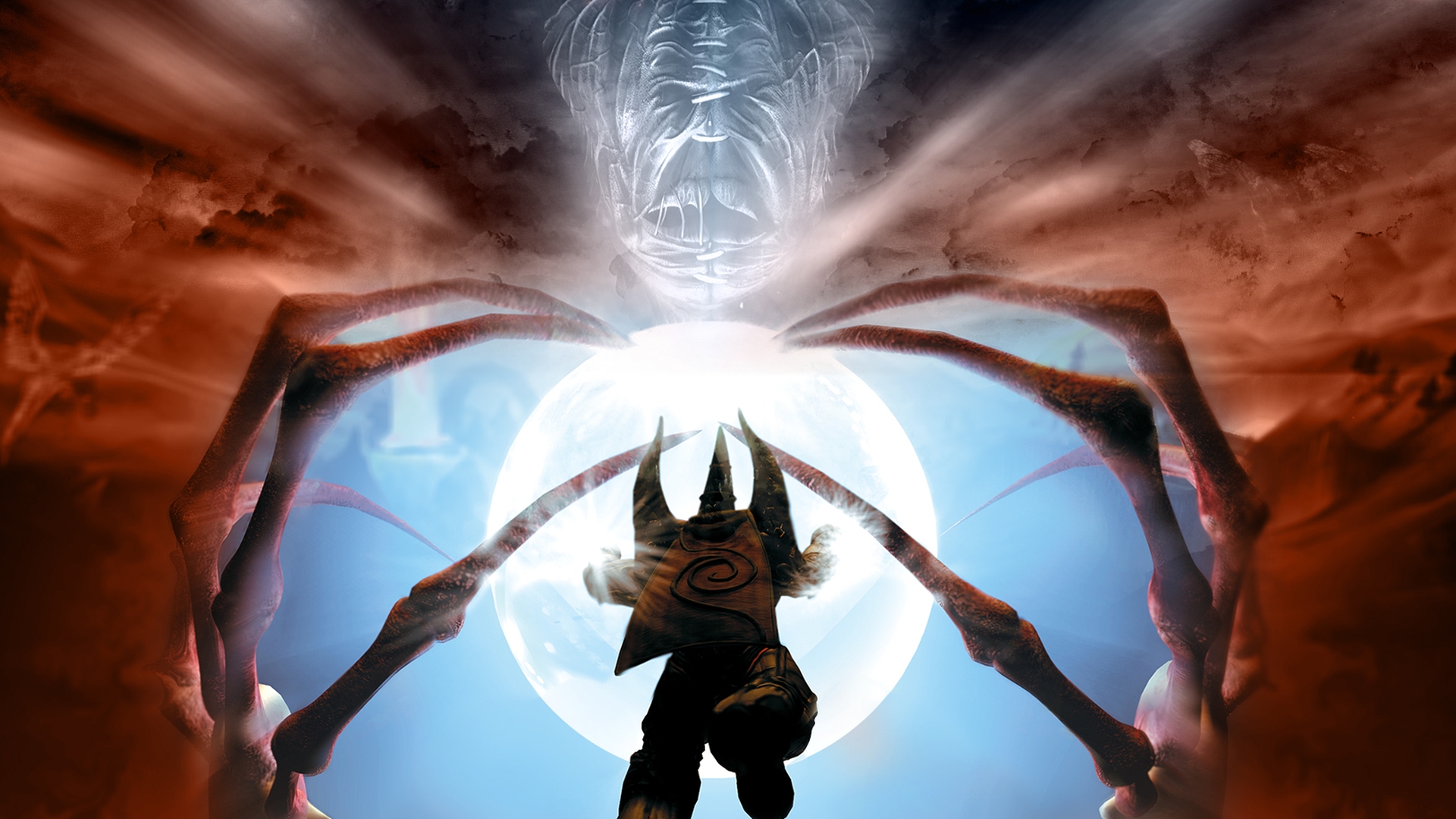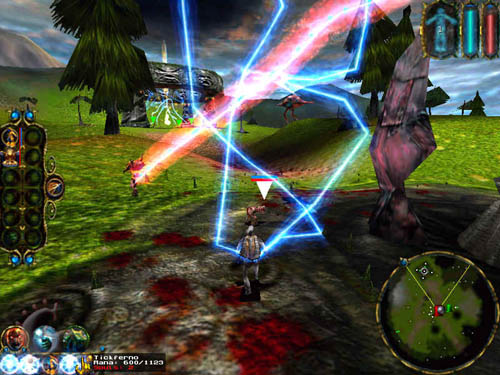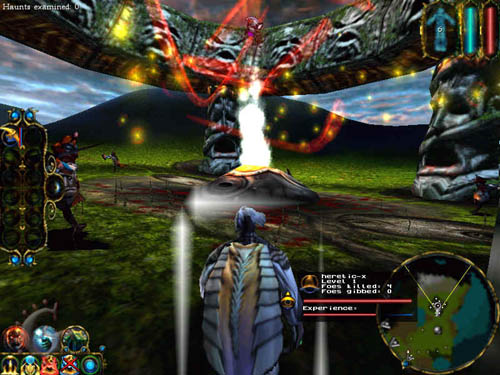Sacrifice was a visionary strategy game, too great to be forgotten
In this classic feature, Kieron Gillen looks at Sacrifice and says, "I wouldn't altar a thing."

Keep up to date with the most important stories and the best deals, as picked by the PC Gamer team.
You are now subscribed
Your newsletter sign-up was successful
Want to add more newsletters?

Every Friday
GamesRadar+
Your weekly update on everything you could ever want to know about the games you already love, games we know you're going to love in the near future, and tales from the communities that surround them.

Every Thursday
GTA 6 O'clock
Our special GTA 6 newsletter, with breaking news, insider info, and rumor analysis from the award-winning GTA 6 O'clock experts.

Every Friday
Knowledge
From the creators of Edge: A weekly videogame industry newsletter with analysis from expert writers, guidance from professionals, and insight into what's on the horizon.

Every Thursday
The Setup
Hardware nerds unite, sign up to our free tech newsletter for a weekly digest of the hottest new tech, the latest gadgets on the test bench, and much more.

Every Wednesday
Switch 2 Spotlight
Sign up to our new Switch 2 newsletter, where we bring you the latest talking points on Nintendo's new console each week, bring you up to date on the news, and recommend what games to play.

Every Saturday
The Watchlist
Subscribe for a weekly digest of the movie and TV news that matters, direct to your inbox. From first-look trailers, interviews, reviews and explainers, we've got you covered.

Once a month
SFX
Get sneak previews, exclusive competitions and details of special events each month!
We're digging into the PC Gamer archives to publish pieces from years gone by. This article was originally published in PC Gamer issue 162, June 2006.
Sacrifice makes me sad. It's not that it didn't get a sequel. It's not that it sold terribly. It's not that it's barely referenced today despite innovating game mechanics and technology. It's not even that, years later, Shiny are a laughing stock for the various Matrix misadventures when once they were this good.
Sacrifice makes me sad for even bigger reasons.
Set in a bizarre fantasy world, with five miffed deities waging war against each other, you play a wizard. Not a floppy-hat wizard—but a childhood fever-dream nightmarishly warped wizard.
In a manner directly inspired by Spectrum classic Chaos, you can not only zap people with thaumaturgical attacks but also summon followers to fight for you. You can order them in an RTS fashion, telling them to go attack distant places, protect things and so on. Resource management is built tightly into the skirmish: you war over mana-fonts, sources of the magical energy for your abilities. The size of your army is limited by the number of souls you have—which can be recycled from the bodies of your own fallen or harvested from the corpses of the enemy.
It's not much of a high-level strategy game, more about group tactics and chaotic melees. Going in with your army arrayed around you, trying to make a difference inside the scrum, summoning the right soldiers to best take down the opposition.
Playing now, it's amazing what we've forgotten. It's a game that found itself in the PCG Top 100 for years through reputation rather than our active familiarity with it. Last great Shiny game, looked really weird, blah-blah-blah. Except it's painfully better than that. Take one obvious thing that never gets mentioned among the "Hieronymus Bosch does Command & Conquer"-isms: it's funny. Really funny.
Keep up to date with the most important stories and the best deals, as picked by the PC Gamer team.

While its contemporary Giants gets remembered as being packed full of gags, the brilliantly voice-acted and sharply scripted Sacrifice gets no credit. "Of course I don't want to destroy the world," the Death God Charnel argues. "That's where all the good slaughters happen." "Haven't we all had enough of war?" asks James, the voice of reason in the heavens. "NO!" ripostes everyone else in perfectly timed chorus.
A full active volcano erupting beneath you, ground swelling up like a boil of tectonic flesh
Away from the wordplay, it manages the highest calibre of slapstick. One of James's highest level spells is an in-gag reference to Earthworm Jim, where the wizard fires a several-hundred-tonne cow into the sky. Thirty seconds later it returns, a single target annihilated beneath this beef missile. The name of the spell? Bovine Intervention.

Around this time (2000), Shiny loved to reimagine some of the older classics. Although Shiny's an American company, head man Dave Perry comes from Ireland, which meant he was exposed to games largely alien to the American marketplace. Sacrifice updated Chaos, Julian Gollop's game of warring wizards. Shortly before Sacrifice, we were treated to cherub-possession game Messiah, which was a sharp riff off Graftgold's robot-takeover classic Paradroid.
Technologically speaking, this was the first time since Messiah that Shiny had managed to get their tessellation technology working, radically scaling the level of graphics detail according to distance. Absolutely standard now, but back then an innovation—and so well implemented that while it's obvious you're looking at ageing technology, on full whack it's still a highly acceptable visual experience.
But it's the mechanics that throw you. Why do we credit Black & White with pushing its gesture control system when Sacrifice did a subtle, low-key version a year earlier? Menus are forgotten as you discover that merely tracing a shape in the air is enough to cause the same effect, seamlessly ordering your followers into defensive positions. Elegantly, it first supplements then supersedes the more traditional system, rather than merely replacing it.
Given its mouse-gesture system, economy based on souls, radical take on RTS ideas and general timbre of unbridled creativity, the most obvious modern parallel to Sacrifice is Darwinia. But while neither has had the commercial success they deserve, thinking about Sacrifice makes me sadder than thinking about Introversion's game. Darwinia seems like a game with a future: it's going somewhere, a role-model for a whole generation of underground creators and another step in Introversion's plan for whatever the hell it is they want to do.

Sacrifice had no future. It was an ending. It was the end of Shiny as a true creative force. It was the end of a certain period of PC games, where a budget big enough for real production values could be spent on something so self-evidently quirky. There's the nagging sensation that in the same way there'll never be another Nietzsche or Bowie or Citizen Kane, we'll never see its like again. The world that enabled its creation is simply gone forever. And the gaming future that Sacrifice tried to foretell was more interesting than the one we ended up with.
Sacrifice reminds me exactly how good, how imaginative, how brilliant it's possible for a videogame to be
Perversely, as the console generation clock ticks around, Sacrifice feels more next-gen years after its release than the majority of new games. The maximum level magic powers remain overwhelmingly impressive. A full active volcano erupting beneath you, ground swelling up like a boil of tectonic flesh before cracking open and a hot stream of lava shooting defiantly into the air. Being snatched up by a whirlwind, spinning around in the ether while still stumblingly trying to control your forces. A towering embodiment of Death, striding across the earth and killing indiscriminately.

Spiked plants of death lashing out at all and sundry, impaling and lobbing victims high into the sky. A tornado circling away from its target, etching a spiral into the ground before the very soil itself falls away into the infinite void. We've seen classical strategy games aspire to this sort of devastation, but it's completely different in this first-person experience. Compared to this poetry of annihilation, a world where an AK-47 is the height of violence is a little depressing. Seeing glass shatter when they could use the same technology to rend mountain-sides asunder.
Sacrifice reminds me exactly how good, how imaginative, how brilliant it's possible for a videogame to be and it's clear that no one's going to spend serious money on making a game like it ever again. That doesn't just make me sad. It makes me despair.

